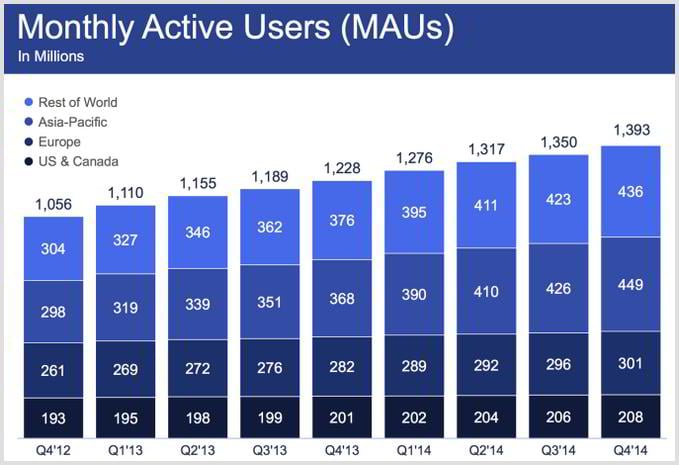A Surefire Business Plan to Become a Social Media Consultant
Have you ever thought that your obsession with social networks can bring you real money? Today we will lift the veil of one of the most prospecting businesses of our time – social consulting.
- What social network to choose?
- How much can I charge for my services?
- How much will it cost to build an effective website for my business?
These and other questions are answered here.
Attention: social media is all about communication. If you prefer not to contact with other human beings without a substantial reason, this type of entrepreneurship is probably not for you.
Build a Powerful Social Media Account and Use it as Your Portfolio
First of all, you need to show your potential clients what you are capable of. To do so, make sure that your own social media accounts are professional and trustworthy.
If you don’t know where to start, here is a tip for you:
Google knows everything. Proof:
Choosing a platform
Do you already have experience with one of the popular social media platforms? Great! Then you will need less time to learn all of its ins and outs. If not, you will probably need to start with the basics, and read a lot of “how to” articles for beginners.
Here are the most popular social media platforms and their peculiarities:
With more than 1 billion active users, Facebook is a one-size-fits-all social platform. Whether your clients sell goods or provide services they will be able to reach their target audience via Facebook. Thousands of articles and eBooks have been written on promoting a Facebook account, so you have an unlimited source of free knowledge at your disposal.
Twitter is famous for its short-form messages, being a popular to-go social media network for businesses of all sizes.
Google+
The flagship social network by Google is far less popular that Facebook and Twitter, but is not useless, especially if you are a consultant.
Pinterest is mostly populated by females (68.2% vs. 31.8% males), that’s why it’s great for promoting image-first content. Its users are considered to be less tech-savvy, that’s why it will be easier for you to find new clients.
With a focus on simplicity, it's being effectively used by such huge brands as Red Bull. It's best for promoting companies involved in fashion, beauty and food industries. Unlike Pinterest, it's fully focused on mobile users; you should keep it in mind when building your strategy.
LinkedIn is one of the most rewarding social networks for businesses. Unlike Instagram and Pinterest, it's considered to be a “professional” platform. The traffic from this network converts much better than from Facebook, especially in such niches as finance and tech. Moreover, LinkedIn is not as popular among consultants as Facebook and Twitter, so you won’t face tough competition.
There are other networks, which are less popular, but have a great potential: Tinder, Reddit, Medium, YouTube, and many more. Each of them requires a special approach, but such unsaturated niches are a goldmine for new consultants, as they are almost completely competition-free.
Offer Your Services Via That Exact Platform
Search for businesses and individuals that need to improve their social media presence, and offer them your services directly via private messaging. You will be surprised how many entrepreneurs run social media accounts, but don’t have a clue how to use them properly.
Don’t be greedy, do some work for free. This will help you build useful connections, and quickly fill your portfolio and obtain testimonials.
Another benefit of such an “unpaid internship” is that you don’t owe anyone anything. You can take your time to solve the problems that arise, experiment and learn something new.
How much to charge for your services?
After you have gained some live experience and testimonials, set a fair price for your services.
Here are the real life examples of what social media consultants charge:
- Professional/studio: $800-1200 per month (depending on the number of social networks);
- Fiverr.com: starting $5 per month;
- Upwork.com: starting $9 per month;
- Outsourcely.com: starting $426 per month;
- Taskarmy.com: starting $7 per hour;
Don’t forget that you can run several projects at the same time.
Buy or Build a Website
You don’t need a large website for your little social media business. A micro-site or even a simple one-pager should be enough to meet your goals.
You can either build it yourself using a template, delegate this work to professional web designers, or buy a ready-made business website on a marketplace (such as Flippa).
Your website should contain a minimum viable set of pages (or content blocks in case of a one-page website):
- General info about your services
This information can be scattered through several pages such as homepage, Services, Pricing, Features, etc. Provide as much information as possible, so your visitors will be able to quickly find all the necessary info about you and your skills.
- Portfolio
As we have already mentioned, your social accounts are your portfolio, that’s why you should display them directly on your homepage. The best way is embedding your accounts via specific scripts and modules available for most content management systems.
- Social proof
Don’t forget to create a dedicated page with real testimonials.
- Feedback functionality
A “Contact Us” form is essential for every business website. You can also add live chat
If you are looking to build a brand, you will also need a blog and a couple of landing pages for your PPC campaigns.
Most contemporary business templates come with all of the above, so you don’t need to implement this functionality yourself.
Create Useful Content for Your Blog
Now, when you have a blog, you need to add some shareable/useful/engaging content to grow your audience. Here we list the most popular content types that will help you attract more visitors, and eventually convert them into your clients.
Guides and Tutorials
Write useful guides and tutorials on social media growth.
Roundups of useful resources
Although sometimes considered as “lazy” content, roundups are nevertheless popular and highly demanded.
Infographics
These informative eye candies providing essential information in an easy-to-digest form are loved in the modern digital world. Smart original infographics can earn you lots of traffic and backlinks. There are plenty of free and premium infographic templates (such as this one), so all you need is basic Photoshop or Illustrator skills.
eBooks
Great for kickstarting email marketing, eBooks are basically your articles processed and wrapped in a fancy layout.
Exclusive freebies
If you have experience with graphic design, you can expand your content assortment with downloadable freebies for social networks: social media kits, headers for Twitter, avatars, etc.
Coupons and giveaways
Make your visitors loyal to your business by providing them with actual discounts and coupon codes of hosting providers, online services, and such. You can get them on specific websites such as, or directly from the coupon providers.
Run Marketing Campaigns
If you want your website to bring you customers, you will need a significant amount of traffic. Sheer content marketing is usually not enough, so consider doing some advertising.
PPC (Pay Per Click)
Google AdSense is a great way of turning your money into… even more money.
SMM (Social Media Marketing)
You are an SMM specialist, right? Then put your skills to use, and promote your own business website.
SEO (Search Engine Optimization)
This one is intended to boost your organic traffic.
Check out our comprehensive guide on affiliate store marketing. It covers every tool you need to make your website work for you.
Expenses
Let’s sum up all the expenses that you will encounter on your road to entrepreneurship.
Hosting
An average shared hosting plan will cost you $1.99-3.75 per month.
Domain name
Its price is $10-$100 per year (depending on the domain name).
Design
If your choice is a ready-made template, then you can get one for as little as $45. Professional services are much more expensive, with prices reaching a whopping $40,000 for a project.
Total
To launch your social consulting business will cost you from $57 to $40,000, plus marketing costs. While domain and hosting are pretty cheap, designing a custom website can be really pricey. If you want to save on the design, consider using a responsive website template or WordPress theme.
Conclusion
This was the first article from our brand new series of business plans. With enough skill and experience, you can make big cash from home doing what you love.
Thanks for reading, and don’t hesitate to subscribe to our newsletter!
Good luck!
Get more to your email
Subscribe to our newsletter and access exclusive content and offers available only to MonsterPost subscribers.






Leave a Reply
You must be logged in to post a comment.